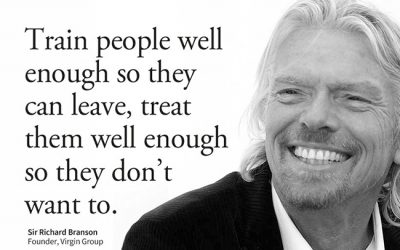Recently, I was having a conversation with a colleague, and I could feel – very nearly see – the anger radiating off him. When I asked what he was struggling with, he seemed genuinely confused. ‘Everything’s going great,’ he assured me. Yet, the upset in his tone and manner was unmistakable. I leaned in further, asking more questions, and what we learned together made us both better.
First, let’s set the scene. Picture someone who has all the outward indications of success. Good career, responsible job, happy family, financial security, and the respect of his colleagues. Yet, as we talked, he admitted a nagging sense of disquiet, a frustration he struggled to define or explain.
His frustration wasn’t tied to a healthy entrepreneurial need to grow. This was something different.
The more we talked, I noticed how his words kept shifting back to the past. Initially, he talked more about successes than failures. Yet, the more he shared, the more his train of thought shifted toward the failures and the disappointments. In time, even his conversation about successes was tinged with regret that he had not done more, or done it better. There was an undercurrent of disappointment, for himself and for those he felt he’d let down. That admission revealed the fundamental question.
“I’ve done a lot, some of it very well … what could I have done if I was just a little bit better, smarter or stronger. If I’d acted faster… Where would I be today?”
In that question, I heard years, maybe even decades, of regret, of self-defeating anger and bitterness. This man, who had achieved so much to be proud of, was struggling to enjoy his success, because he was stuck on what might have been. I realized, somewhere along the way, he had begun to connect “potential” with failure.”
The more we talked, the clearer it became. Because he had not achieved absolutely everything he might have, he felt he was letting someone down. Maybe himself, but I suspected it was someone else, someone in his past who had given him a standard, probably with the best intentions, and failed to define that standard.
I knew if my colleague could discern the point at which he began making that connection between that ill-defined expectation of success and his feelings of failure, he would then begin to understand that other people did not determine his worth. He would realize success would remain elusive — for him and for his team — as long as he allowed someone’s else’s hazy goals and poorly defined standards of success to limit his peace. So, I asked: “How old were you when someone acknowledged you for having potential?”
The answer to this question was the foundation on which he built a direct connection between his personal worth and achieving the potential others had placed on him. To his current way of thinking, success, hard work, money, prestige and the respect of his colleagues would never be enough; because, as long as he continued to look at his life through the lens of that undefined “potential,” he always felt the pressure to achieve a vague level of success without any real measure of achievement.
This belief grew into a paradigm, and then blossomed into a belief system that tainted everything he believed about himself.
Because the potential he was striving for had not been defined, he would never achieve that potential. Meanwhile, the false belief system was limiting his ability to inspire others, because, when he saw his own successes as “not good enough,” those who shared in those successes, also shared in that “failure.” He may have never articulated it, but his team sensed it … and many of them interpreted this disappointment as an unspoken commentary on their own performance. They didn’t know how they had failed, and, yet, they still believed they had somehow missed the mark … without any indication of how to get better.
Due to this transference, an air of disappointment and futility hung over his team. They wanted to get excited about their victories, and they wanted to climb even higher … yet, nothing seemed quite good enough.
This conversation reinforced how undefined expectations limit our ability to enjoy our successes. How regrets we cling to will affect our thinking, limiting our perspectives so we limit our potential.
When we focus on negative outcomes and allow negative perspectives or unwarranted criticism to cloud our choices, we limit our ability to inspire those around us. Because inspiration is fundamental to leadership, when we reduce our capacity to inspire, we lower our leadership lid. This has a devastating effect on our team. Yet, when we focus on inspiring and resourcing others so they may be their best, we cast off our current limits, raise our lid and set a new bar on our potential.
Are there any negative ideas you’re holding on to that may be lowering your lid and limiting your success? Are there any negative ideas you let go of that gave you more freedom to succeed?
4 questions to prepare you for your next big opportunity
In recounting stories of their success, people often say that one opportunity changed the trajectory of their life. We hear it all the time: on awards shows, after sporting events, during graduation speeches. Someone, at some point, was presented with an...
5 questions every employee wants their boss to ask
Recently, Forbes published a list of 10 Things Only Bad Bosses Say. While most of us have ‘bad boss experiences’ in the past, so we may relate, this article got me thinking about some of the things great leaders say to inspire and motivate their teams....
What Richard Branson looks for in a leader
Sometimes, as leaders, we feel pulled in two different directions, do we invest our time and energy in our employees or our customers? While it’s easy to say “both,” the reality is, we have limits on our time, so one or the other is going to get more of...
Creating an environment that encourages people to lead
In our most recent blogs, we looked at two different real-world customer service scenarios. In one story, both an employee and a manager fumbled a simple service opportunity that nearly cost them a long-time customer. In the next story, one employee chose...
A leader steps up and saves the deal
In our last blog, I shared a friend’s story of what he called “bewilderingly poor customer service,” that left him wondering why neither the employee nor the manager seemed to know how to fix the problem … or felt empowered to do so. Today’s story begins...
A customer service miscue leaves a lasting impression
In our last blog, we talked about the importance of investing in our team members personally, as well as professionally, and what that means for our organization. In this blog, I want to share a story about what can happen when leadership focuses on skills...








0 Comments